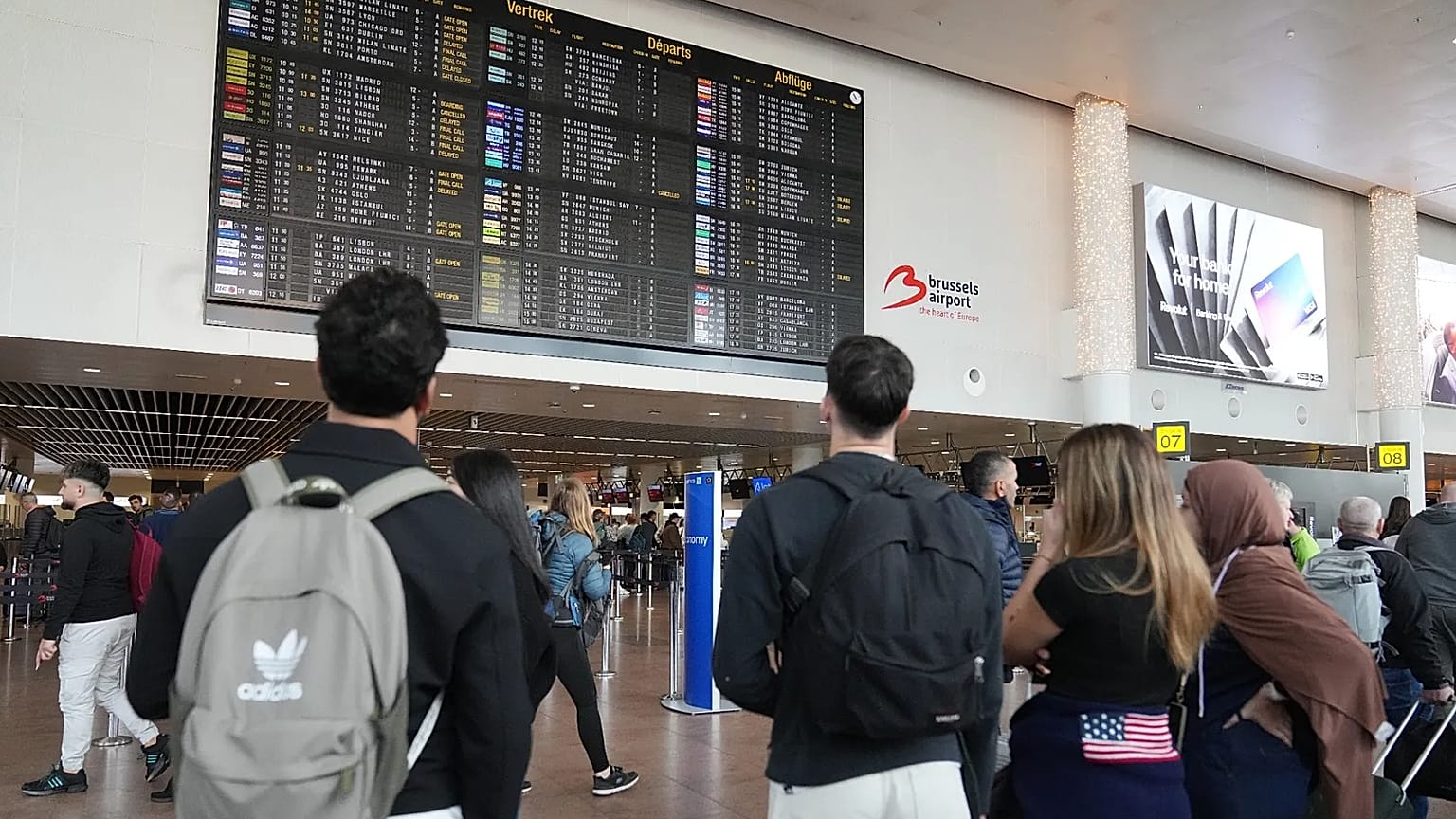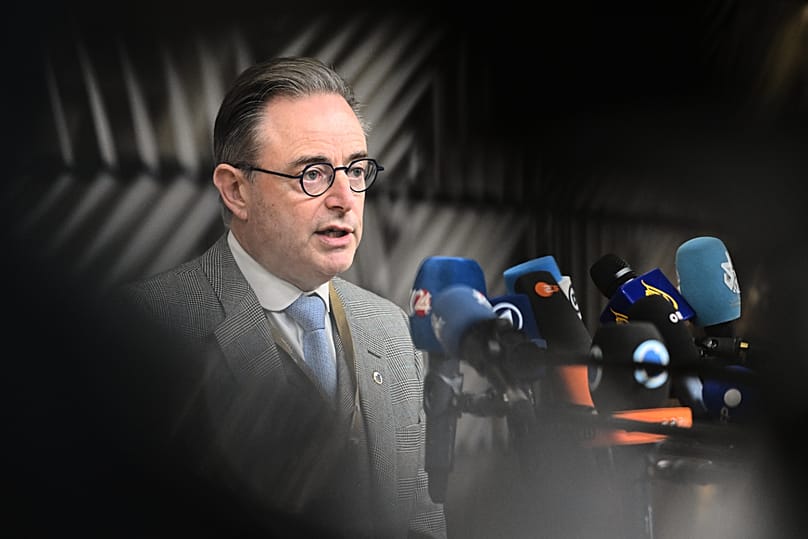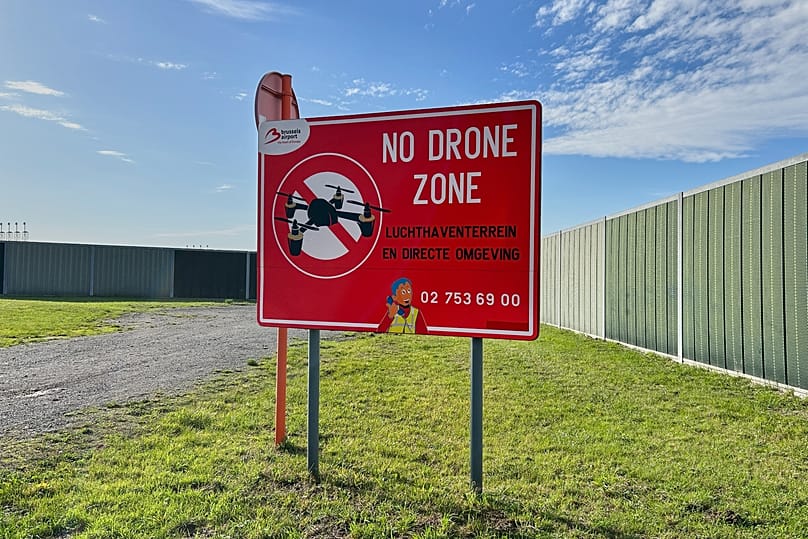The airport operator said that about 400-500 travellers spent the night there after 41 flights were cancelled and 24 diverted to other airports.
Dozens of flights at Belgium's main international airport were cancelled early on Wednesday after drone sightings overnight forced it to close temporarily, prompting Prime Minister Bart De Wever to convene a meeting with senior ministers to discuss safety concerns.
It was the first time that the airport in Brussels had been shut down by drones. The incident overnight on Wednesday is the latest in a series of unidentified drone flights over the weekend.
Prior to the Brussels drone sighting, UAVs were spotted near a military base in Belgium where US nuclear weapons are stored.
Brussels Airport said that 54 flights were cancelled as a result of the Tuesday evening shutdown "for safety reasons," saying that "the safety of our passengers and staff remains our top priority."
In a social media post later on Wednesday, the airport said flight operations had resumed but that some delays were likely.
The airport operator said that about 400-500 travellers spent the night there after 41 flights were cancelled and 24 diverted to other airports and that it had set up beds and distributed water and snacks to keep people comfortable.
De Wever convened a meeting of Belgium's National Security Council, which includes the country’s defence, interior, justice and foreign ministers, for Thursday morning.
In a post on social media, Interior Minister Bernard Quintin said that "the repetition of incidents linked to drones directly affects the security of our country. We must take action in a calm, serious and coordinated manner."
The operators of the drones in recent days have not been identified, but Defence Minister Theo Francken insisted that "this is not the work of amateurs," without elaborating.
Belgium hosts the headquarters of NATO and the European Union, as well as Europe's largest financial clearinghouse, which holds tens of billions of euros in frozen Russian assets.
NATO and EU on high alert
Both NATO and the European Union have been on high alert following a string of airspace violations, thought to be from Russia, in recent weeks.
NATO issued a warning to Moscow at the end of September, saying it would use all means to defend against any further breaches of its airspace after the downing of Russian drones over Poland and Estonia's report of an intrusion by Russian fighter jets.
The 10 September incident in Poland was the first direct encounter between NATO and Russia since its full-scale invasion of Ukraine began in early 2022.
Estonia said three Russian MiG-31 fighter jets entered its airspace for 12 minutes on Friday without authorisation, a charge that the Kremlin has rejected.
The incidents caused widespread consternation among leaders across Europe, raising questions about the alliance's preparedness against growing Russian aggression.
Following the violation of Polish airspace, NATO Secretary General Mark Rutte announced the formation of the Eastern Sentry programme, which aims to deter further Russian incursions and show solidarity with Poland.
"We see drones violating our airspace. Whether it was intentional or not, it is unacceptable. The allies have expressed full solidarity with Poland. It is crucial to counter aggression and defend every member of the alliance," the NATO chief said.

















